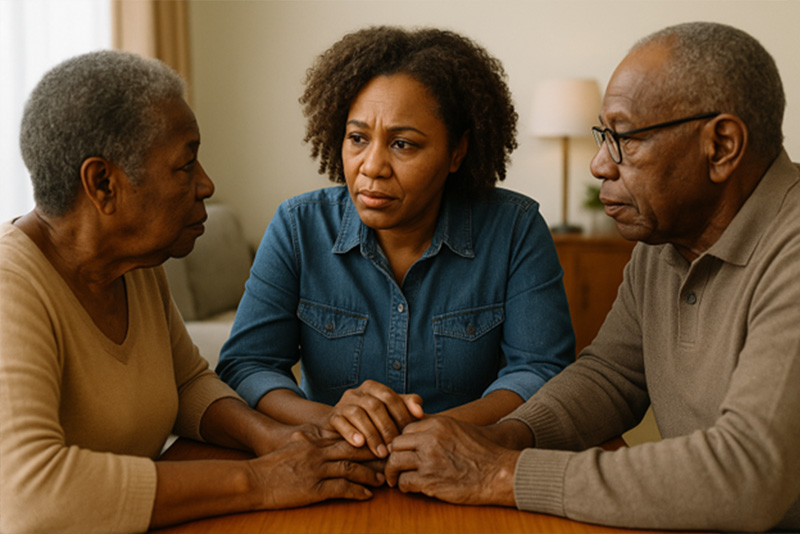What You Need to Know if You’re Experiencing a Role Reversal With Aging Parents
One moment you’re asking your parents how to roast a chicken or fix the garbage disposal. The next, you’re organizing their pillbox, scheduling follow-up visits, and trying to make sense of insurance paperwork.
The role reversal with aging parents doesn’t happen overnight. It usually starts small: a ride to the doctor, picking up groceries, checking in more frequently. But before long, the responsibilities grow. Suddenly, you’re the one asking the hard questions:
Are they safe at home alone?
Should someone be driving with them?
Is it time to talk about care options?
And more often than not, those conversations happen later than we’d like to admit.
No Manual, No Map; Just You Trying Your Best
Nothing quite prepares you for the day your parent forgets to pay a bill, leaves the stove on, or starts mixing up medications. It’s a jarring shift: the people who raised you now need your help. And figuring out how to offer that help with grace, patience, and respect is where the real challenge lies.
Behind the to-do list is a tangle of emotions: the sadness of watching someone change, the pressure of getting it right, the guilt of not doing more, and the exhaustion that builds when you try to do it all.
Starting the Tough Talks Sooner
What would your parents want if they couldn’t manage the house anymore? Have they set up legal documents like a living will or healthcare proxy? Can they afford home care, or would they need financial support?
These aren’t easy questions, but waiting doesn’t make them easier. Talking while things are calm opens the door for more thoughtful decisions. And it allows your parents to share their wishes before someone else has to guess what they’d want.
When Family History Enters the Room
Caring for a parent rarely plays out in a perfectly coordinated, all-hands-on-deck kind of way. More often, old family dynamics resurface. One sibling does more, another questions every move. Tensions rise. Past hurts reappear.
It’s not unusual. In fact, it’s almost expected. But setting clear roles, respecting boundaries, and keeping communication open can help ease some of the stress. Every family walks this path differently, and that’s okay.
Staying Grounded While Supporting Someone Else
You may feel like stepping up means putting your own needs on pause. But caregiving isn’t sustainable when it comes at the cost of your own health. You matter, too.
Even small things can make a big difference. Letting someone else handle dinner. Taking a 20-minute walk. Saying yes to help, even when it feels easier to do it yourself. These moments are not luxuries; they’re survival tools.
If you’re running on fumes, it’s time to reevaluate. You don’t have to carry this alone. Even a few hours of professional care each week can create breathing room and restore some balance.
Support That Feels Like Family
If you’re navigating this transition, whether it’s brand new or something you’ve been managing for years, know that you’re doing meaningful work, even when it doesn’t always feel that way. And we’re here to support you every step of the way.
At CareWorks Health Services, we walk alongside families in Huntington Beach, Newport Beach, Laguna Woods, and throughout Orange County, providing dependable in-home care that brings peace of mind and practical relief.
Reach out to us at (949) 859-4700 to explore how we can support you and the people you love.
